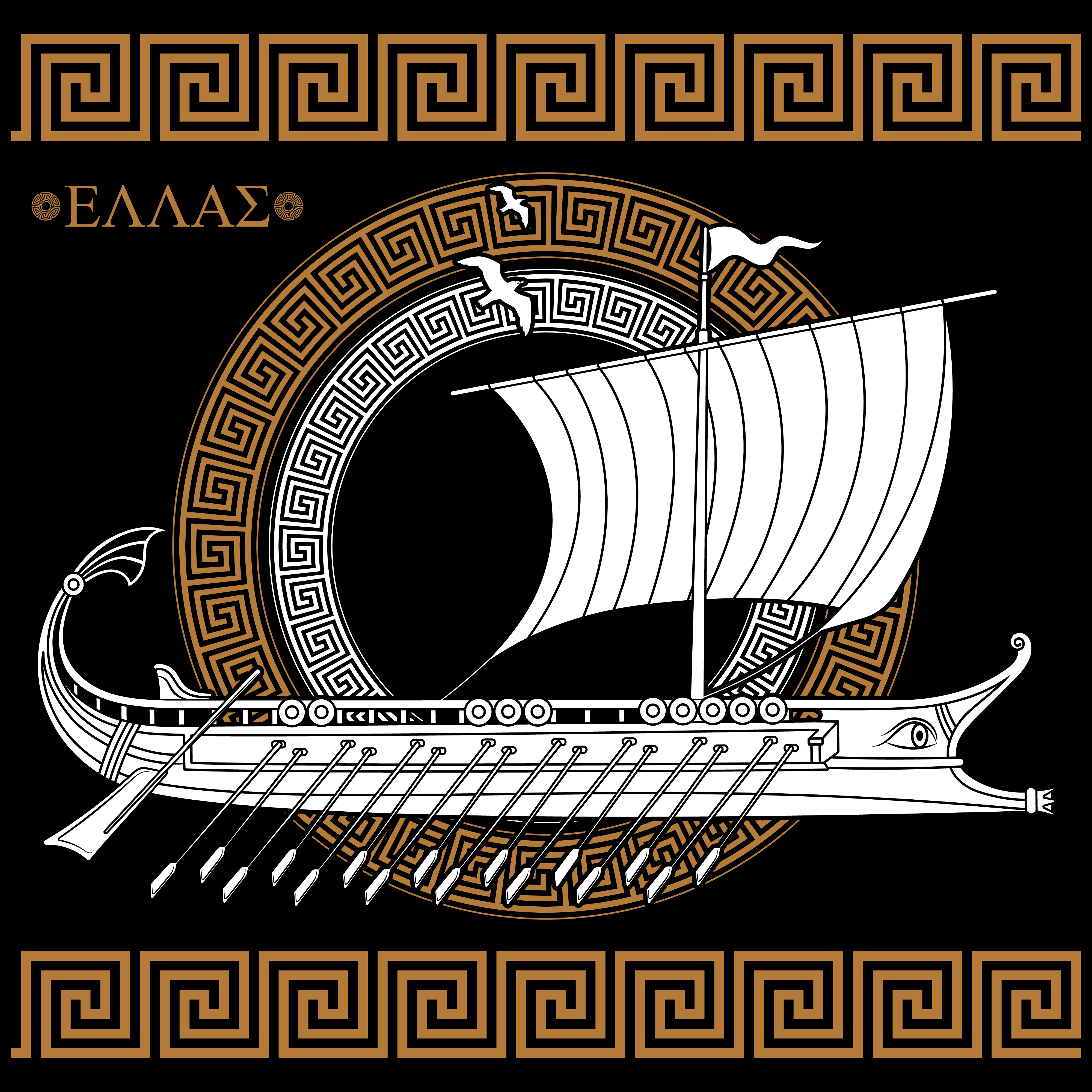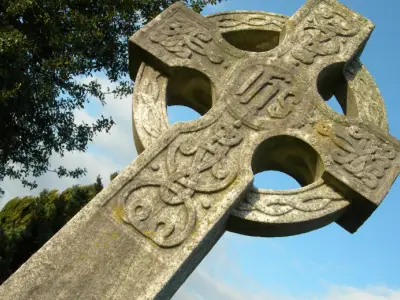When it comes to the great epics of Greek mythology, few figures are as captivating as Helen of Troy. Described as the most beautiful woman in the world, her story is one of love, conflict, and the downfall of a mighty city. This blog post explores who Helen of Troy was, her role in mythology, her famous relationships, and the symbols and myths that surround her.
Jump to:
- The Story of Helen of Troy
- Key Adventures and Challenges
- Helen and Her Powers: The Divine Gift of Beauty
- Symbols of Helen of Troy
- Helen, Menelaus, and Paris: The Triangle that Launched a Thousand Ships
- Was Helen of Troy Good or Bad?
- What Happened to Helen After Troy Fell?
- Did Helen and Paris Have a Child?
- Themes and Lessons from the Myth
- The Enduring Legend of Helen of Troy
- Interesting Facts about Helen of Troy
- Explore More Greek Myths with Centre of Excellence
Recommended for you!
Best SellersThe Story of Helen of Troy
Helen of Troy, often referred to simply as Helen, was a key figure in Greek mythology, famous for her unparalleled beauty and the role she played in the Trojan War. Born to Zeus, the king of the gods, and Leda, a mortal queen, Helen was said to be the most beautiful woman in the world. Her beauty was so enchanting that it sparked the infamous Trojan War, a conflict that would change the course of both history and myth.
Helen was originally the queen of Sparta, married to Menelaus, but her fateful encounter with Paris, a prince of Troy, changed everything. According to the myth, Paris fell in love with Helen after the goddess Aphrodite promised her to him as a reward for declaring her the fairest of the goddesses. Helen's decision to leave her husband, Menelaus, and elope with Paris triggered the ten-year-long war between Greece and Troy.
Key Adventures and Challenges

Helen’s life was marked by key adventures that shaped her destiny and those around her. Here are the most significant events in her myth:
The Judgement of Paris
Helen's fate was sealed long before she met Paris. In an event known as the Judgment of Paris, the young prince of Troy was asked to decide which of three goddesses—Hera, Athena, or Aphrodite—was the fairest. Aphrodite, the goddess of love, promised Paris the love of the most beautiful woman in the world if he chose her. Paris did, and the most beautiful woman, of course, was Helen, who was already married to King Menelaus.
Helen and Paris: The Elopement
With Aphrodite’s help, Paris travelled to Sparta, where he met Helen and convinced her to leave her husband and sail with him to Troy. Whether Helen was abducted or willingly eloped has been debated for centuries. Some versions of the myth suggest she was enchanted by Aphrodite, while others claim she made the choice herself. Either way, her departure from Sparta ignited the wrath of Menelaus, who vowed to bring her back, leading to the Trojan War.
The Trojan War
The Trojan War is the most famous adventure linked to Helen. When Menelaus discovered that Helen had left with Paris, he called upon the other Greek kings to help him retrieve her. This alliance launched a massive expedition to Troy, and for ten years, the Greeks laid siege to the city. Helen’s presence in Troy caused much bitterness and strife. Though many warriors fought for her return, some in Troy saw her as the cause of their suffering.
After the Fall of Troy
Following the fall of Troy, Helen’s fate varied depending on the myth. In many versions, she was reconciled with Menelaus and returned to Sparta, where they lived out the rest of their lives. Some versions suggest she was deified after death, while others describe her as fleeing to Egypt to start a new life. Despite the war and the destruction that followed, Helen's beauty and her role as a queen remained a key part of her mythological identity.
Helen and Her Powers: The Divine Gift of Beauty
Helen of Troy’s most famous attribute was her beauty, which is often described as otherworldly. Though she wasn’t a goddess herself, her divine lineage meant that her beauty was seen as a gift from the gods—specifically, from her father, Zeus. This beauty had immense power, capable of captivating kings, starting wars, and, as some myths suggest, even manipulating the minds of those around her. In many versions of the story, her beauty was so powerful that she could control men’s fates, simply by her presence.
However, Helen’s powers went beyond physical appearance. She was also depicted as intelligent and cunning, though often overshadowed by the chaos her beauty caused. Her ability to charm and persuade was seen as a double-edged sword, leading to both admiration and condemnation.
Symbols of Helen of Troy

Several symbols are associated with Helen of Troy, each representing different aspects of her story. One of the most prominent symbols is the ship, representing her journey from Sparta to Troy. This journey is symbolic of the transition from loyalty to rebellion, from peace to war.
Another important symbol is the mirror, representing vanity and the obsession with beauty that followed Helen throughout her life. Mirrors were also seen as gateways to the soul, reflecting the internal struggles she may have faced as she balanced the roles of wife, lover, and catalyst of war.
Finally, the apple plays a role in her story. It was the apple of discord, thrown by Eris, the goddess of strife, that led to the judgment of Paris and ultimately to Helen being promised to him by Aphrodite. This apple symbolises the fateful choices that shaped her life and the lives of those around her.
Helen, Menelaus, and Paris: The Triangle that Launched a Thousand Ships
Helen’s romantic entanglements are at the heart of her story. Her marriage to Menelaus, king of Sparta, seemed to solidify her place as a queen. But it was her love affair with Paris that cemented her place in myth. Paris, the Trojan prince, was said to have fallen in love with Helen at first sight, aided by the intervention of Aphrodite, who had promised him the love of the most beautiful woman in the world.
The love between Helen and Paris was passionate but controversial. Some stories suggest that Helen was abducted against her will, while others portray her as a willing participant. Whether she was a victim or a co-conspirator remains a point of debate in many versions of the myth. Regardless, Helen’s departure from Sparta and her elopement with Paris led to the ten-year Trojan War, where Menelaus fought to bring his wife back.
Was Helen of Troy Good or Bad?
One of the most enduring questions about Helen of Troy is whether she was a villain or a victim. Was she simply a pawn of the gods, used to fulfil their plans for war, or did she have agency in her decisions? In many versions of the myth, Helen is portrayed as a complex character—neither wholly good nor evil.
Some versions of her story cast her as a victim of the gods' whims, manipulated by Aphrodite and Paris. In these tales, Helen’s beauty was both her blessing and her curse, forcing her into a life of constant conflict and turmoil. Others suggest that Helen was aware of her actions and willingly chose to leave Menelaus, driven by her own desires.
In any case, Helen’s role in the war led many in both Greece and Troy to view her with disdain. Some blamed her for the deaths of thousands, while others saw her as a scapegoat for a conflict that had much deeper roots.
What Happened to Helen After Troy Fell?

After the fall of Troy, Helen’s fate varied depending on the version of the story you read. In the most common myth, she was reunited with her first husband, Menelaus, and returned to Sparta. Despite everything that had happened, Menelaus forgave her, and they lived out the rest of their lives together. Some myths suggest that Helen was even deified after her death, becoming immortal alongside her divine father, Zeus.
In other versions, Helen’s story takes a darker turn. She is cast out by Menelaus or is forced to flee to Egypt. These tales often highlight the tragedy of Helen’s life, suggesting that her beauty, which brought her so much admiration, also led to her downfall and ultimate loneliness.
Did Helen and Paris Have a Child?
The question of whether Helen and Paris had a child is one that varies depending on the source. In some versions of the myth, they had a child named Pleistorus, though this child is not often central to the main stories of Helen and Troy. Most versions of the story focus more on Helen’s beauty and her role in the war rather than her family life. Paris, for his part, did not live long after the fall of Troy, further complicating their potential legacy as parents.
Themes and Lessons from the Myth

Helen’s story is more than just one of beauty; it carries themes that have resonated through time.
The Power of Choice and Consequence
Helen's actions, whether of her own will or influenced by divine forces, have consequences that affect not only her life but also the lives of those around her. Her decision (or lack thereof) to leave Menelaus leads to a war that changes the course of Greek and Trojan history. The myth suggests that choices, especially those related to love and loyalty, have far-reaching consequences.
Beauty as a Blessing and a Curse
The central theme of Helen’s myth is the dual nature of beauty. While it grants Helen power and admiration, it also brings destruction and suffering. Her beauty causes men to go to war, cities to fall, and lives to be lost. This reflects the ancient Greek idea that beauty, like many gifts from the gods, could be both beneficial and dangerous.
The Role of Fate and the Gods
The gods play a significant role in Helen’s life. From her divine birth to her involvement in the Judgment of Paris, much of her story is influenced by divine forces. This brings forward the theme of fate, suggesting that despite her power and influence, Helen, like many figures in Greek mythology, may have been merely a pawn in the larger plans of the gods.
The Enduring Legacy of Helen of Troy
Helen’s story has been told and retold for centuries, not just in ancient texts but in modern literature, film, and art. Her beauty, often seen as a gift, was also a source of conflict, and her choices led to one of the most famous wars in mythology. Yet, her story endures because it raises universal questions about love, loyalty, and the impact of individual decisions on the course of history.
Helen of Troy remains a figure of fascination because of her complexity. Was she a victim of fate or a woman who made her own choices? Was she responsible for the Trojan War, or simply caught in the middle of a conflict beyond her control? These questions keep her legend alive, ensuring that Helen of Troy will continue to be a subject of intrigue for generations to come.
Recommended for you!
Best SellersInteresting Facts about Helen of Troy
- Divine Parentage: Helen was the daughter of Zeus, who took the form of a swan to seduce her mother, Leda. This divine connection gave Helen an almost otherworldly allure.
- Multiple Husbands: While most people associate Helen with Menelaus and Paris, she had other suitors and potential husbands, both before and after her time in Troy.
- Blame and Controversy: In many versions of the myth, Helen is blamed for the destruction of Troy, though others argue that she was merely a pawn of the gods.
- Her Afterlife: In some stories, Helen was taken to the Elysian Fields, a place in the afterlife reserved for the blessed, showing that she may have been forgiven for the destruction caused by her actions.
- Deification: In certain myths, Helen was deified after her death, with some believing she became immortal like her father Zeus.
Explore More Greek Myths with Centre of Excellence
If you want to explore more myths and learn more about the intriguing world of the gods, heroes, and legends, the Greek Mythology Diploma Course at Centre of Excellence is the perfect way to deepen your understanding. For a limited time, you can access this course for just £29.













